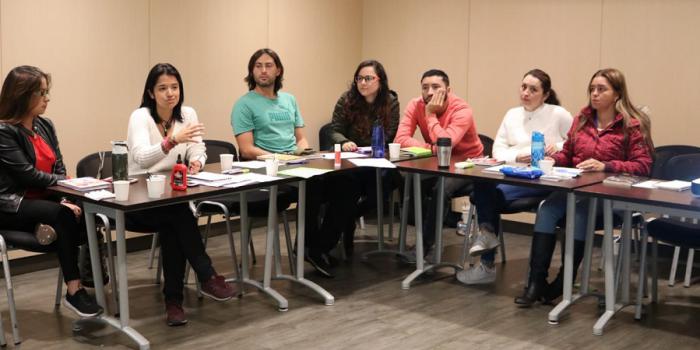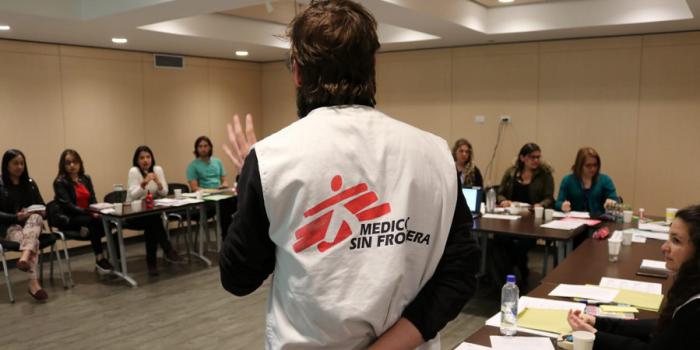
Care for victims of forced disappearance and homicide was update
Staff of the Victims Unit exchanged information about psychosocial care with delegates from Doctors Without Borders.


During two days, in which the assistance and the aids to those affected by forced disappearance and homicide were a central issue, the Victims' Unit and the organization Doctors Without Borders strengthened knowledge on how to give the best possible attention to those who suffered damages by those criminal behavior in the context of armed conflict.
According to Elizabeth Páez, a member of the Psychosocial Approach group of the Reparation Department, "there were days in which knowledge is being learned and reinforced in order to better serve the victims of forced disappearance and homicide. We met two days ago sharing experiences with Doctors Without Borders, on those issues. "
On the other hand, Dora Infante, leader of the Psychosocial Approach group of the process of searching for the bodies of victims of forced disappearance and homicide, highlighted the training days as in their concept they are useful to better respond to the expectations of victims related to victims categories of crime referred.
Infante said that the beneficiaries of this information exchange and knowledge strengthening process are about 20 officials, 11 from the psychosocial focus group and others from various units of the Victims' Unit.
The organization Doctors Without Borders works in the care of people threatened as a consequence of armed conflicts, natural disasters and those who suffer from medical exclusion.
(FIN/rama/drr/cmc)






